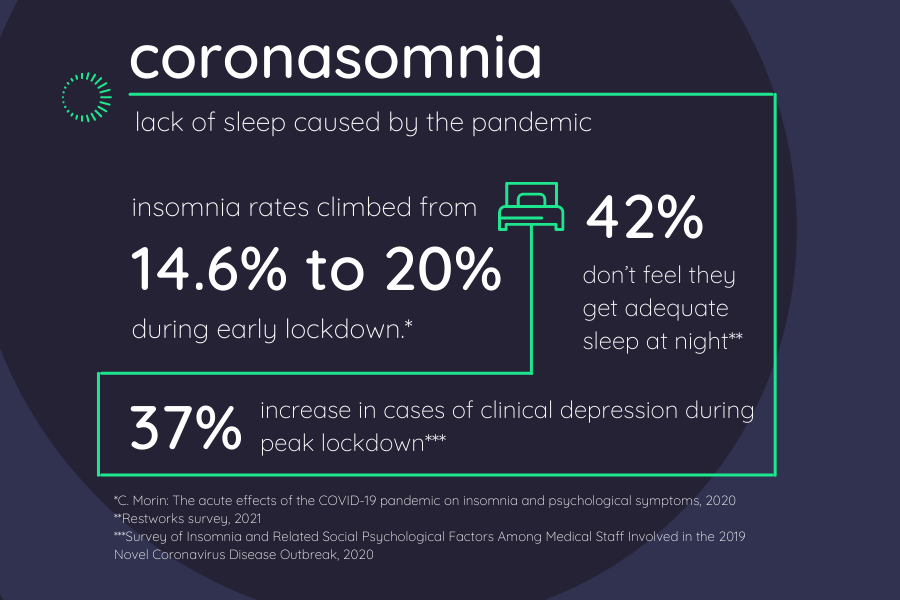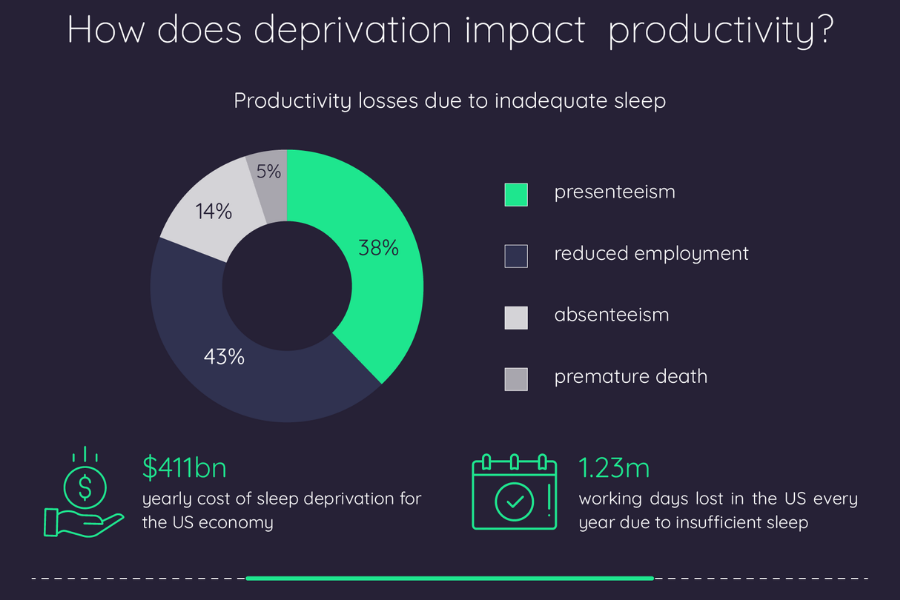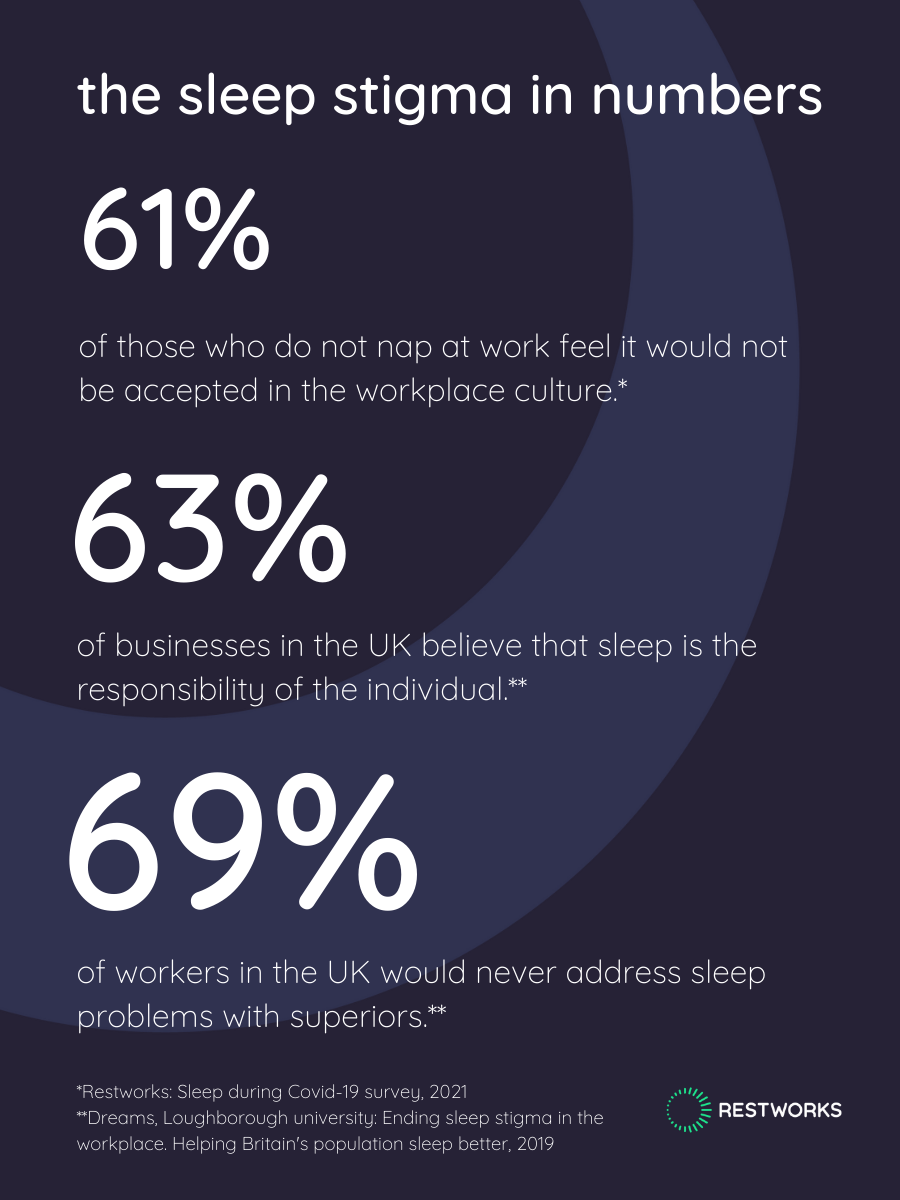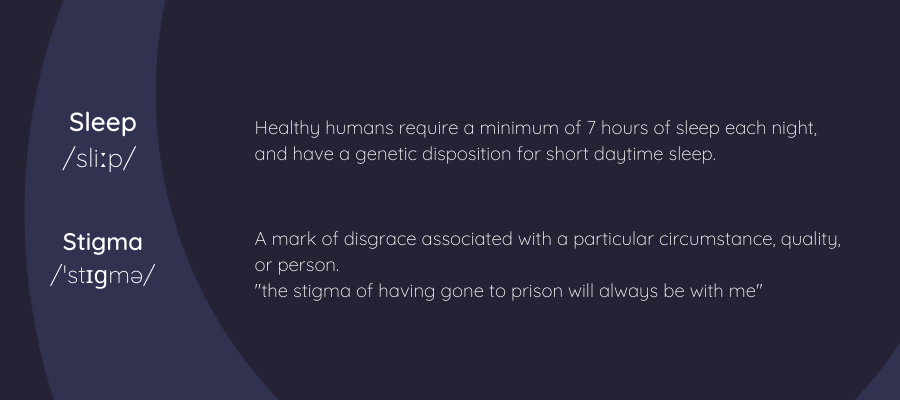The sleep stigma endures – ending it is more relevant than ever
A stigma related to sleep might sound like something that belongs to a past era, but it is very much alive. Two-thirds of business leaders in the UK believe that sleep is the responsibility of the individual, and a similar percentage of workers profess that they would never address sleep problems with superiors for fear it would ruin their careers. As sleep health for much of the world’s population continues to decline as a result of the Covid-19 pandemic, addressing sleep stigma has never been more important.
The perilous state of sleep in 2021
It’s no secret that sleep is having a bad time in modern society. An ever-growing stream of information and entertainment is taking up our time, while blue-light emitting electronics disrupt our circadian rhythm. Recent estimates are that 70% of Americans regularly experience insufficient sleep, while insomnia may affect as high as 30% of the global population.
The Covid-19 pandemic has further reduced the sleep quality of the general population. In China, insomnia rates climbed from 14.6% to 20% during tne early months of lockdown. In Italy, alarming levels of clinical insomnia were observed, and in Greece, as many as 40% of participants in a study conducted in May were insomniacs. Restworks’ research on sleep during Covid-19 points to decreased sleep quality in the US, Australia, and the UK, with 42% of respondents saying they don’t feel they get adequate sleep at night. The pandemic-induced sleeplessness across the globe has even created a new name – ‘coronasomnia’.

A silent health disaster
The reason why Covid-19 takes such a toll on our sleep has to do with the instability and perceived presence of danger that we experience as the pandemic unfolds. Similar rises in insomnia have previously been observed with natural disasters and armed conflicts. However, the effects of covid-19 are on an unprecedented scale, insofar as we are dealing with a global crisis rather than a local phenomenon.
Covid-19 has – and will have – serious health consequences that will persist well after the end of the pandemic. For example, a study conducted in China during the height of the pandemic revealed a crushing 37% increase in cases of clinical depression. It is well-known that insomnia is connected to depression, and also to a variety of both short and long-term health issues including heart failure, dementia, and more.
As Covid-19 continues to unfold, it becomes apparent that we are dealing with a silent health disaster of sleep deprivation and its resulting diseases. If we wish to minimize consequences, we must begin to address sleep at the workplace.
Why sleep should be a professional matter
People’s sleep health affects society as a whole because when people aren’t well-rested, they make mistakes, perform poorly at work, and are at increased risk for a variety of health issues, including depression and coronary heart disease.
Conversely, people’s work affects their sleep. A 2019 study by Loughborough University in collaboration with UK mattress company Dreams revealed that:
- 33% experience better sleep in periods where they have higher work satisfaction
- 50% find it takes longer to fall asleep after a stressful time at work
- 33% agree that having a conflict with a colleague harms their sleep
Yet, despite the substantial effect employee sleep has on work performance and vice versa, many workplaces still assume that sleep is the individual’s responsibility and that there is nothing managers can do to help employees be well-rested.
Of course, this is could not be further from the truth. By making sleep a company matter, companies have a lot to gain, and there are several easy actionable ways to introduce a responsible sleep policy. The first order of businesses would be to end the stigma surrounding sleep at the workplace.

The sleep stigma in numbers
Although humans are genetically hardwired for an afternoon siesta, the way society has developed since the industrial revolution has shunned midday sleep as something unproductive and wasteful.
In 2021, Restworks completed a survey in which 61% of respondents who did not nap at work said this is because it is not accepted in the workplace culture. This indicates just how widespread the stigma on daytime sleep still prevails.
The enduring sleep stigma seems to exist among leaders and workers alike: In the UK, 69% of workers would not discuss sleep problems with their superiors, while 63% of businesses do not believe employees’ sleep is their concern. But even though the stigma goes both ways, it is leaders that must take the initiative if we wish to improve the sleep health of our population.
Sleep is not wasteful. It is a human necessity and a resource that when used properly has been scientifically proven to increase productivity, heighten creativity and improve interactions in the workplace. Conversely, sleep deprivation is directly attributed to billions lost on reduced productivity and sick days.

What can be done
Misconceptions about the role of daytime sleep are widespread among workers and employers alike. The consequences are a sleep-deprived workforce that costs companies billions due to decreased effectiveness, increased sick days, and a lower threshold for dealing with challenging situations.
The best way to break the negative pattern is through information and education. If the leadership of a company openly addresses the role of sleep and formulates a clear policy regarding sleep, the ripple effect will trickle down from managers to their employees who take their lead from the examples set by their bosses.
The next step is to actively encourage a healthy sleep schedule. This can be done by installing proper facilities for employees to take power naps such as a sleeping pod, and by appointing a person to whom employees may seek assistance should they experience chronic insomnia or other sleep problems.
According to a study by Dreams, businesses can find substantial motivation to take sleep seriously:
- Two in five (42%) employees would consider a company to be a better place to work if it adopted measures to support its people to get better sleep
- One in four people (24%) say they would more actively consider a role at a company that offered sleep support to their employees
- As many as one in three people (33%) said they would feel more loyalty to a company that adopted measures to help their people sleep better
On top of this comes fewer sick days, higher productivity, and better relationships between colleagues. In a nutshell, businesses have everything to gain by putting sleep on the agenda. By not acting, consequences are more devastating than ever.


